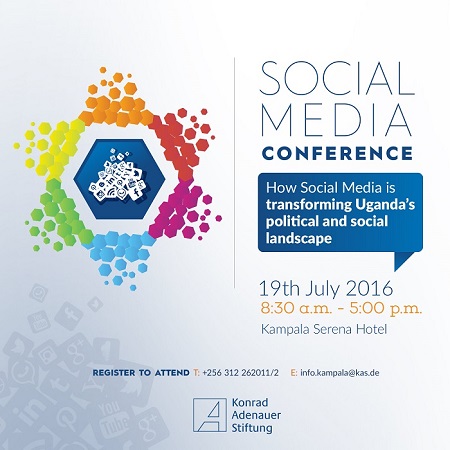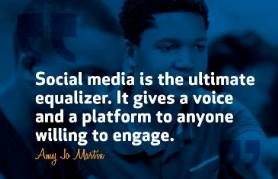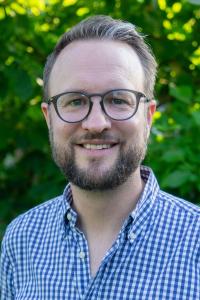The second annual KAS Social Media Conference took place on 19th July at the Kampala Serena Hotel. It brought together key stakeholders from academia, government, civil society and the media to have a constructive exchange on the opportunities and challenges of the growing social media sphere and to assess how it is shaping the political and social landscape in the country.
THE CONFERENCE IS ONE OF OUR ANNUAL EVENTS. THE 2017 EDITION WILL TAKE PLACE IN JULY
facebook.com/UgandaSocialMedia2016
Here's a summary clip of the 2016 Social Media Conference:
Check out the 2016 event report and pictures here
THE 2016 EVENT WAS LIVESTREAMED: Click here for the recorded video.

BACKGROUND
The Uganda Social Media Conference is an annual KAS-Uganda programme that aims to bring together key stakeholders from government, civil society and the media to have a constructive exchange on the opportunities and risks of the growing social media sphere and to assess the impact it has on citizen-state engagement. Started in 2015, the conference provides a unique platform for theorizing, dialoguing and engaging on how this unique media tool can be harnessed to promote democratic consolidation and good governance.
The media evolution from print to radio, to TV and now online media has continued to inform and shape mass opinions and perceptions in society. Social media connects people in many ways and voices that were previously unheard burst to the limelight and stories of individuals are harder to suppress than ever before. The emergence of social media networks such as Facebook, Twitter, Instagram and YouTube that bypass the traditional gatekeeping role of media means many citizens are able to access and share information before even the media gets to the scene. The power of social media to democratize communication and remove controls is putting to test some of the long held roles of the media. Social media now enables the opinions, perception and actions of the majority who previously relied on traditional and mainstream media, to freely flow among groups.
In Uganda the last years have seen a rise in social media. Millions of Ugandans access the internet - many of them through their mobile phones - and are joining social media platforms in ever increasing numbers. With such masses of people using Facebook, Twitter and messaging apps like WhatsApp the ways we communicate and share information are fast changing. A news statement can advance from zero to a million viewers overnight. The viral nature of this highly social, user-driven environment enables complete strangers to connect over common beliefs, desires or interests.

In its global engagement in the promotion of democracy and good governance, the Konrad-Adenauer-Stiftung (KAS) has a long history of promoting free and professional media through journalism trainings and scholarship programmes as well as facilitating networking and dialogue platforms. Through the Media Programme for Subsahara Africa based in Johannesburg, KAS supports journalists, bloggers and political communicators across the continent, for example by facilitating the online platform Africa Blogging.
In Uganda, KAS in July 2015 organized the first ever platform meant to focus on the political dimension of social media in the country. The 2015 Social Media Conference brought together a host of experts and professionals from civil society, media practitioners and scholars, political activists, and government officials to assess the impact of social media on political communication and civic engagement.
To further strengthen and understand the scientific perspectives on social media and political communication, KAS dedicated volume 9 of the publication series Reality Check to synthesize this new digital opportunity. Launched in January 2016, the publication unearths the theoretical underpinnings, new emancipatory potentials, the contribution of social media in the 2016 presidential election campaigns and the NGO/Civil Society perspective of social media.
The 2016 conference will continue and deepen the discussion and provide an opportunity to explore the topic in many more facettes. A great number of carefully selected experts will enrich the highly interactive panels with diverse perspectives that will stimulate participants' engagement.
WELCOME REMARKS:
Mathias Kamp, Country Representative, Konrad-Adenauer-Stiftung
@KasUganda
OPENING REMARKS:
Hon. Frank Tumwebaze, Minister for ICT, Information and Communication
@FrankTumwebazek
KEYNOTE ADDRESS:
Daniel Kalinaki, Managing Editor, Nation Media Group, Nairobi
@Kalinaki
PANELLISTS:
OPENING PANEL: Social Media redefining democratic space in Uganda: Building bridges or building walls?
Nicholas Opiyo, Executive Director, Chapter Four Uganda
@nickopiyo
Rosebell Kagumire, Chief Executive, Kweeta Consulting
@rosebellk
Patience Akumu, Policy and Research Coordinator, Oxfam Uganda
@patienceakumu
MODERATOR: Solomon Serwanjja, News Anchor and Reporter, NBS
@solomonserwanjj
BREAK-AWAY PANEL 1: Women and social media in Uganda: breaking barriers - but at what cost?
Henry Nickson Ogwal, Fundraising Director, Action Aid Uganda
@nicksonogwal
Godiva Akullo, Feminist lawyer
@amgodiva
Dr. Sarah Ssali, Makerere School of Gender and Women Studies
@sssalie
Lindsey Kukunda, Blogger and Freelance Writer
@RizaLouise
Moses Owiny, Information Officer, Women of Uganda Network
@mosesowiny
CHAIR: Rebecca Rwakabukoza, Author and Blogger
@rwakabukoza
BREAK-AWAY PANEL 2: Contemporary culture and social media: Big opportunities - tough questions
Violet Nantume, Artist & curator of eroticism and intimacy exhibition
@NntmViolet
Harriet Anena, Author of a Nation in Labor
@ahpetite
Kyomuhendo Ateenyi, Arts Curator and Co-Founder, CACE
@Omusambu
Andrew Salema Ludigo, Visual Artist, Mandela Washington Fellow 2015
@ludigocreations
CHAIR: Donnas Ojok, Programme Officer, KAS
@OjokD
BREAK-AWAY PANEL 3: Traditional media in the age of social media: challenges and opportunities for a Ugandan journalist today
Catherine Byaruhanga, BBC Uganda Correspondent
@cathkemi
Remmy Bahati, News Reporter, NBS
@BahatiRemmy
Gerald Bareebe, PhD Candidate, University of Toronto
'@GeraldBareebe
Giles Muhame, Managing Editor, Chimp Reports
@Gilespies
Edward Sekyewa, Executive Director, Hub for Investigative Media
@SekyewaER
CHAIR: Joy Doreen Biira, Journalist and News Anchor, KTN
@JoyDoreenBiira
BREAK-AWAY PANEL 4: Advancing good governance and service delivery through social media
Prossy Kawala, Journalist & Media Literacy Advocate, CEMCOD
@ProssyKawala
Patrick Kayemba, Iganga District LC5 Chairman
@1kayembapatrick
Eshban Kwesiga, Programme Manager, Parliament Watch
@EshbanKwesiga
Peter Kaujju, Spokesperson, KCCA
@PeterKaujju
Maureen Agena, ICT4D Consultant
@maureenagena
CHAIR: Gawaya Tegulle, Media Consultant
@gawayategulle
CLOSING PANEL & PLENARY DISCUSSION: Challenges and Opportunities of Social Media – Where are we heading?
Ruth Aine, Blogger
@RuthAine
Daniel Kalinaki, Managing Editor, Nation Media Group
@Kalinaki
Joy Doreen Biira, Journalist and News Anchor, KTN
@JoyDoreenBiira
Donnas Ojok, Programme Officer, KAS
@OjokD
Julius Mucunguzi, Communications Advisor, Office of the Prime Minister
@j_mucunguzi
MODERATOR: Sheila Nduhukire, Political Reporter and Anchor, NTV
@Snduhukire





